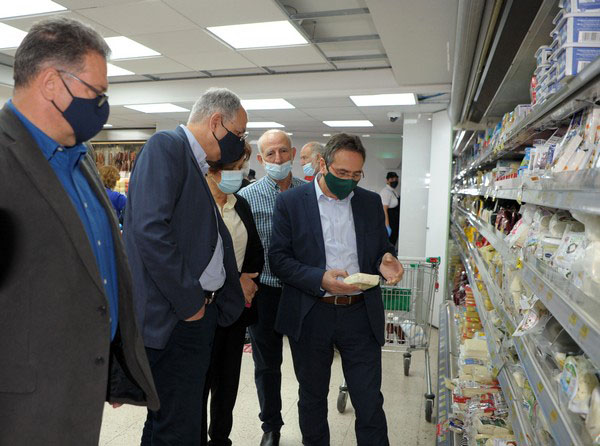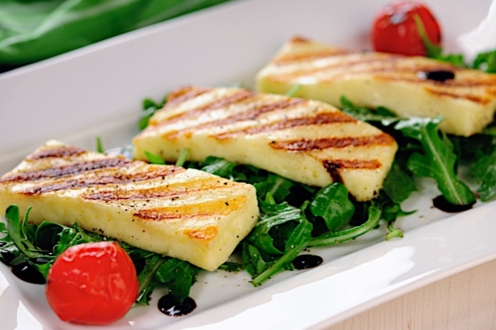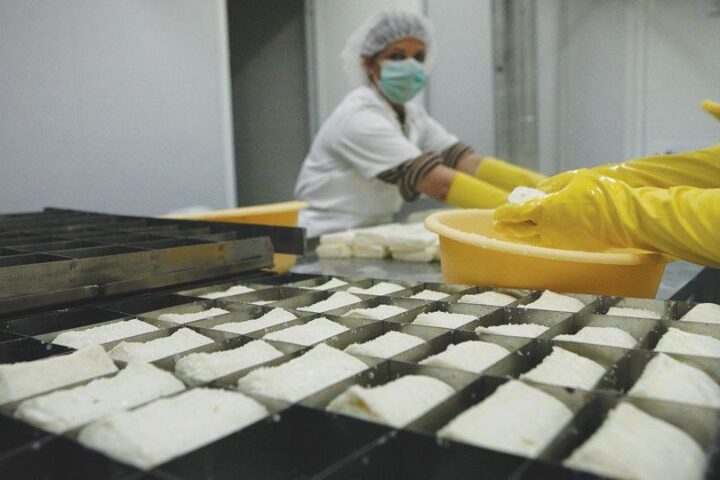This weekend is consumers’ last chance to buy halloumi at discounted prices at supermarkets, as dairy producers offload their last batches of the squeaky cheese that do not comply with the EU Product of Origin.
As of Monday, retailers can only have PDO-certified halloumi on their shelves at higher prices due to a deal authorities struck with stakeholders, including an increase in the milk price.
Retailers are frantically trying to get rid of their stocks to comply with the 19 September deadline when only PDO-produced halloumi can be sold in stores, according to instructions by the Agriculture Ministry.
Reportedly, supermarkets are selling off the cheese with percentage discounts or 1+1 quantity offers.
Initially, the deadline was last week, but when ministry officials carried out spot checks in supermarkets and stores, they found many businesses did not comply with the mandate.
A week’s extension was granted.
In comments to state radio, Marios Antoniou, the general secretary of the Cyprus Retailers Association, confirmed that supermarkets, in consultation with producers, have been selling off the traditional cheese at discounted prices.
“We have until Sunday to do it,” said Antoniou.
“These are quantities produced before 1 September, when an agreement between producers and the government had come into effect.”
He warned consumers that from Monday, Halloumi prices would increase by between €1.5 and €2 per kilo, an increase of 15 to 20%.
To persuade farmers, the ministry suggested that sheep breeders will be compensated with a minimum of €1.35 (up to €1.45) per litre, up from €1.05 – €1.20.
Goat breeders will be compensated €0.80 to €0.90 for every litre of milk.
Cow milk has gone up by 5 cents, with the increase already implemented in the market.
Antoniou said almost every dairy producer has registered with the PDO registry.
“Producers not complying with the PDO file’s criteria will not be allowed to use the Halloumi trademark and will have to call their products either Cyprus cheese or grill cheese.
“From our knowledge, only one company will continue selling non-PDO products, which in any case has been calling its cheese grill for some time now.”
This month many supermarkets stopped receiving these stocks, while recommendations have been made not to accept halloumi products other than those bearing the PDO mark.
Warning
The Agriculture Ministry has warned supermarkets that the authority will not give out another extension to retailers to remove their non-PDO Halloumi stocks.
In a letter sent to the Association of Supermarkets, the ministry warned of consequences for retailers caught selling non-PDO products.
It also added that all halloumi products produced after the cheese dairies joined the inspection system should bear the EU logo for PDOs.
The ministry will be carrying out spot checks at retail outlets.
Products found in violation will be removed from the shelves and confiscated.
The ministry will hold the retailers and the producers responsible as they are obliged to take back any non-PDO Halloumi from shops.
Offenders will face hefty fines.
A recent deal foresees that the thorny issue of the ratio of cow to goat and sheep milk is now resolved, with the Agriculture Ministry conceding to dairy producers’ demands to postpone the implementation of the milk ratio until 2024.
After an initial transitional period up to 2024, products may be labelled “halloumi” if they contain at least 10% goat and sheep milk during the ‘low’ season and 25% during the high season.
The low season is February to August, when goat and sheep milk production is at its lowest.
For the rest of the year, the ratio is set at a minimum of 25% goat and sheep milk.
Based on the deal, the ratio is to be increased by 5% on top of 25% every year until the 50% level is reached in 2029.
Several changes will be made to the PDO file, including the shape and size of the squeaky cheese.
The deal is subject to the approval of Brussels, with authorities and other stakeholders confident that the European Commission will approve an end to the ‘Halloumi wars’.
In 2020 total sales of halloumi cheese reached 42,200 tonnes worth €285.5 mln.










